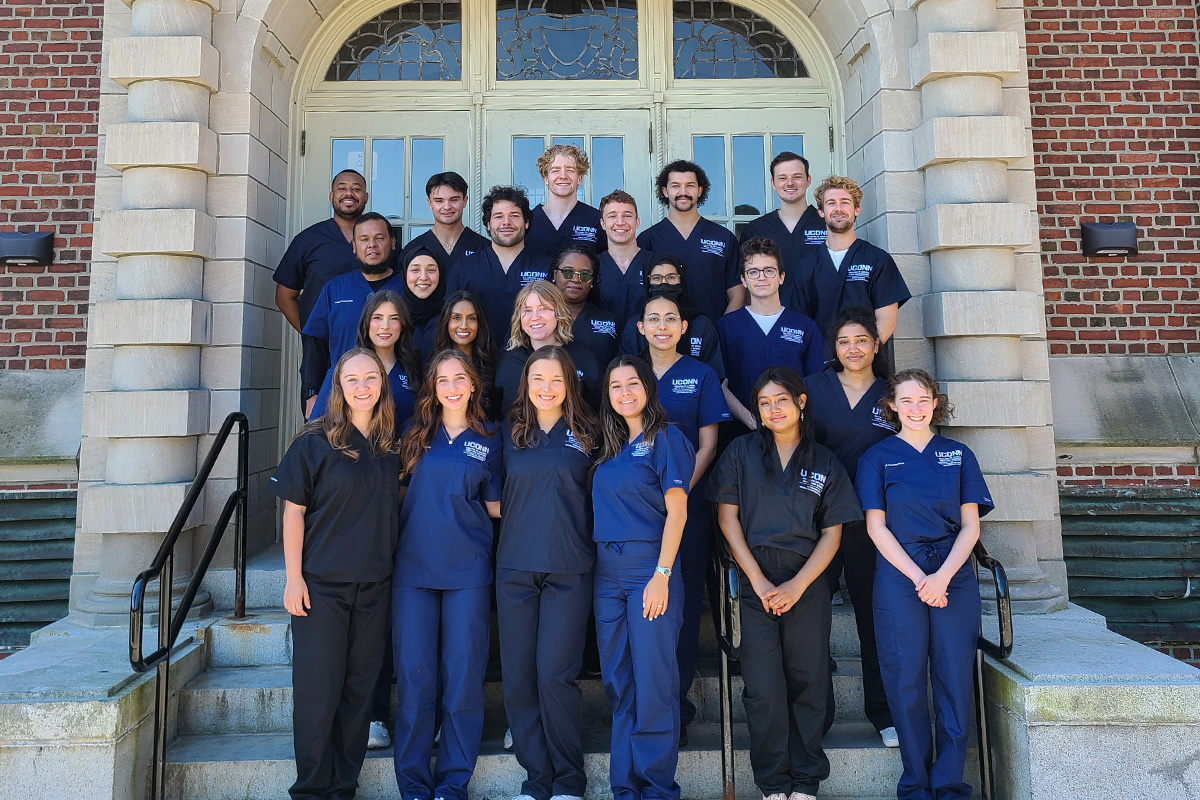GRADUATE PROGRAMS IN
Intraoperative Neuromonitoring & Surgical Neurophysiology
Our Programs
UConn’s graduate programs in interoperative neuromonitoring and surgical neurophysiology prepare students for careers in health care through hands-on training in intraoperative neurophysiological monitoring (IONM). You’ll gain a strong foundation in neuroanatomy and neurophysiology while learning how to support surgical teams and protect the nervous system during complex medical procedures.
Whether you’re continuing from an undergraduate degree or pivoting into neuroscience or clinical practice, our programs are designed to get you career-ready in this growing health care specialty.

Master of Science in Surgical Neurophysiology
UConn’s one-year, 34-credit Master of Science in Surgical Neurophysiology equips students with the educational and clinical training needed to become a surgical neurophysiologist.

Graduate Certificate Intraoperative Neuromonitoring
This 12-week, 14-credit certificate program equips students with the skills needed for a full-time role as a neuromonitoring clinician trainee and prepares them to assist in surgical cases.
The Master of Science in Surgical Neurophysiology at University of Connecticut is accredited by the Commission on Accreditation of Allied Health Education Programs upon the recommendation of the Committee on Accreditation for Education in Neurodiagnostic Technology (COA-NDT).
Jobs and Careers
Approximately 1 million surgical cases use intraoperative neuromonitoring in the United States annually, and the demand is expected to grow as the number of surgical procedures utilizing IONM increases. There are currently more than 5,000 active Certified Neurophysiological Intraoperative Monitoring (CNIM) professionals in the field, with an estimated need of over 200 additional certified and trained professionals, and the demand continues to grow each each year.
UConn Student Outcomes
Class of 2025
100%
Retention rate graduate programs
100%
Pass rate for CNIM credentialing exam
100%
Positive career outcomes for alumni
Admissions
Applications for the 2026-2027 IONM cohort are now open. The Application deadline is March 15, 2026.
Both the master’s and certificate programs are open to students from all academic backgrounds.